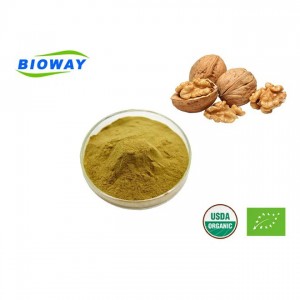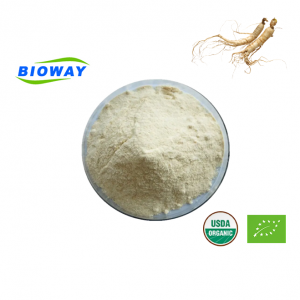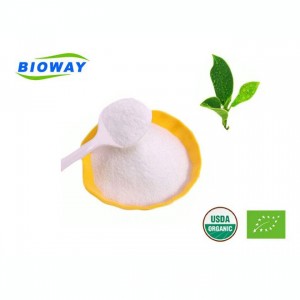Branched Chain Amino Acid BCAAs Powder
BCAAs stands for Branched Chain Amino Acids, which are a group of three essential amino acids - Leucine, Isoleucine, and Valine. BCAA Powder is a dietary supplement that contains these three amino acids in a concentrated form. BCAAs are important building blocks for proteins in the body, and they play a crucial role in muscle growth and repair. They also help reduce muscle breakdown during exercise, and may improve exercise performance when taken before or during workouts. BCAA Powder is commonly used by athletes, bodybuilders, and fitness enthusiasts to enhance muscle recovery and promote muscle growth. It can be added to drinks or taken as a capsule or tablet. However, it's important to note that while BCAA supplements can have benefits, they should not be used as a replacement for a healthy, balanced diet.
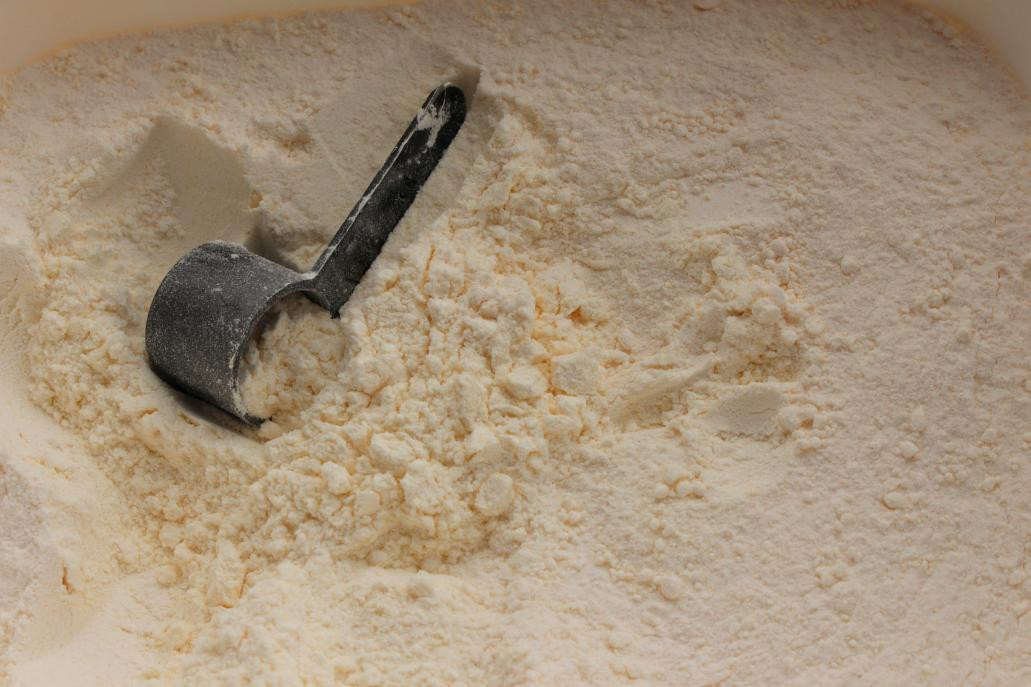
| Product name | BCAAs Powder |
| Others name | Branched Chain Amino Acid |
| Apperance | white powder |
| Spec. | 2:1:1, 4:1:1 |
| Purity | 99% |
| CAS No. | 61-90-5 |
| Shelf time | 2 years,keep away sunlight, keep dry |
| Item | Specification | Result |
| Content of Leucine | 46.0%~54.0% | 48.9% |
| Content of Valine | 22.0%~27.0% | 25.1% |
| Content of Isoleucine | 22.0%~27.0% | 23.2% |
| Bulk Density | 0.20g/ml~0.60g/ml | 0.31g/ml |
| Heavy metals | <10ppm | Conforms |
| Arsenic(As203) | <1 ppm | Conforms |
| Lead(Pb) | <0.5 ppm | Conforms |
| Loss on drying | <1.0% | 0.05% |
| Residue on ignition | <0.40% | 0.06% |
| Total plate count | ≤1000cfu/g | Conforms |
| Yeast and Moulds | ≤100cfu/g | Conforms |
| E.Coli | Absent | Not-detected |
| Salmonella | Absent | Not-detected |
| Staphylococcus aureus | Absent | Not-detected |
Here are some common features of BCAA powder products: 1. BCAA Ratio: BCAAs come in a ratio of 2:1:1 or 4:1:1 (leucine: isoleucine: valine). Some BCAA powders contain a higher amount of leucine as it is the most anabolic amino acid and can aid in muscle growth.
2. Formulation & Flavour: BCAA powders may come in a flavored or unflavored form. Some powders have additional ingredients added to improve absorption, enhance taste, or add nutritional value.
3. Non-GMO & Gluten-Free: Many BCAA supplements are labeled non-genetically modified and gluten-free, suitable for individuals who have food sensitivities.
4. Lab-Tested & Certified: Reputable brands test their BCAA supplements in third-party labs and get certified for quality and purity.
5. Packaging & Servings: Most BCAA powder supplements come in a can or pouch with a scoop and instructions on the recommended serving size. The number of servings per container varies too.
1.Muscle growth: Leucine, one of the BCAAs, signals the body to build muscle. Taking BCAAs before or during exercise can help support the growth and maintenance of muscle mass.
2.Improved exercise performance: Supplementing with BCAAs can help improve endurance during exercise by reducing fatigue and preserving glycogen in muscles.
3.Reduced muscle soreness: BCAAs can help reduce muscle damage and soreness caused by exercise, helping you recover faster between workouts.
4.Reduced muscle wasting: During a calorie deficit or fasting, the body may break down muscle tissue to use as fuel. BCAAs can help to preserve muscle mass during these periods.
5. Improved immune function: BCAAs may improve immune function, especially for athletes who are exposed to a higher risk of infections. However, it's important to note that BCAAs should not be solely relied upon for muscle growth and performance. Adequate nutrient intake, proper training, and rest are also crucial factors.
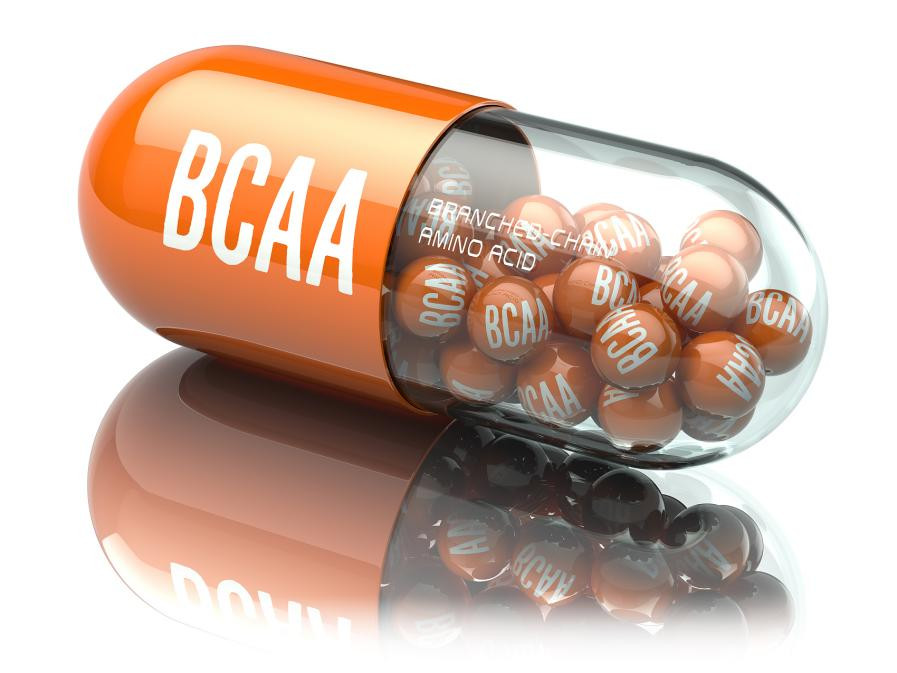
1.Sports nutrition supplements: BCAAs are frequently taken before or during exercise to enhance muscle growth, improve performance, and aid in recovery.
2.Weight loss supplements: BCAAs are often included in weight loss supplements because they can help preserve muscle mass during calorie restriction or fasting.
3.Muscle recovery supplements: BCAAs can help reduce muscle soreness and promote recovery between workouts, making them a popular supplement for athletes or anyone exercising regularly.
4.Medical uses: BCAAs have been used to treat liver disease, burn injuries, and other medical conditions, as they can help prevent muscle loss in these situations.
5. Food and beverage industry: BCAAs are sometimes added to protein bars, energy drinks, and other food products as a way to enhance their nutritional value. It's important to note that BCAAs should be used in conjunction with a healthy diet and regular exercise for optimal results, and as with any supplement, it's recommended to consult with a healthcare professional before use.

BCAAs powder is typically produced through a process called fermentation. This involves the use of specific strains of bacteria that are capable of producing high levels of BCAAs. First, the bacteria are cultured in a nutrient-rich medium that contains the amino acid precursors needed to make BCAAs. Then, as the bacteria grow and reproduce, they produce large amounts of BCAAs, which are harvested and purified. The purified BCAAs are then typically processed into powder form through a number of steps, including drying, grinding, and sieving. The resulting powder can then be packaged and sold as a dietary supplement. It's important to note that the quality and purity of BCAA powder can vary depending on the production method and the manufacturer, so it's essential to choose a reputable supplier if you're interested in using BCAA supplements.
|
Amino Acids (Particle Type) One or several monomeric amino acids →Mix →Extrusion→Spheronization→Pelletizing →Dry →Package →Sieve →Finished product |
Amino acid (Sustained-Release) One or several monomeric amino acids →mix →Extrusion→Spheronization→Pelletizing →Dry →Sieve Phospholipid Instant→ Fluid Bed Coating← Sustained Release (Sustained Release Material) →Dry →Sieve →Package →Finished product |
Storage: Keep in a cool, dry, and clean place, Protect from moisture and direct light.
Bulk Package: 25kg/drum.
Lead Time: 7 days after your order.
Shelf Life: 2 years.
Remark: Customized specifications also can be achieved.

Express
Under 100kg, 3-5Days
Door to door service easy to pick up the goods
By Sea
Over300kg, Around 30 Days
Port to port service professional clearance broker needed
By Air
100kg-1000kg, 5-7Days
Airport to airport service professional clearance broker needed

BCAAs Powder is certified by ISO, HALAL, KOSHER and HACCP certificates.

BCAAs and protein powder serve different purposes in the body, so it's not really fair to say that one is better than the other. Protein powder, which is usually derived from whey, casein, or plant-based sources, is a complete protein containing all 9 essential amino acids necessary for muscle building and repair. It is a convenient and cost-effective way to increase daily protein intake, especially for people who have difficulty meeting their protein needs through whole foods. On the other hand, BCAAs are a group of three essential amino acids (leucine, isoleucine, and valine) that are important for muscle protein synthesis, reducing muscle damage, and promoting muscle recovery. BCAAs can be taken in supplement form to enhance athletic performance and reduce muscle soreness, particularly during and after exercise. So, while both of these supplements can be helpful for athletes or people looking to build or maintain muscle mass, they serve different purposes and can be used in combination for best results.
While BCAAs are generally safe and well-tolerated, there are some potential disadvantages to consider: 1. No significant muscle growth: While BCAAs may help with muscle recovery and reduce muscle soreness, research has not found significant evidence that BCAAs alone lead to significant muscle growth. 2. May interfere with blood sugar levels: BCAAs can cause a decrease in blood sugar levels, which may be particularly problematic for individuals with diabetes who are already on medications that lower blood sugar. 3. Can cause digestive issues: Some people may experience digestive discomfort such as nausea or diarrhea when taking BCAAs, particularly in high doses. 4. Can be expensive: BCAAs can be more expensive than other protein sources, and some supplements are not certified by regulatory bodies, so you might not know what you're getting. 5. Not suitable for individuals with certain medical conditions: People with ALS, maple syrup urine disease, or who have undergone surgery should avoid taking BCAAs. 6. Can interact with certain medications: BCAAs can interact with certain medications, including those used to treat Parkinson's disease, leading to adverse effects.
Both BCAAs (branched-chain amino acids) and protein can be beneficial for muscle recovery and growth after a workout, but they serve different purposes. BCAAs are a type of essential amino acid that plays a crucial role in protein synthesis in the body. Taking BCAAs after a workout can help reduce muscle soreness and promote muscle recovery, particularly if you exercise in a fasted state. Protein contains a variety of essential amino acids, including BCAAs, and can help support muscle growth and repair, especially when consumed within 30 minutes to an hour after a workout. Ultimately, whether you choose to take BCAAs or protein after a workout depends on your individual needs and preferences. If you're short on time or prefer to avoid protein-rich foods immediately after a workout, BCAAs can be a convenient option. However, if you're looking for a more complete source of amino acids to support muscle recovery and growth, protein may be the better choice.
The best time to take BCAAs (branched-chain amino acids) is generally before, during, or after a workout. Taking BCAAs before or during exercise can help prevent muscle breakdown during intense training, while taking them after exercise can help speed up muscle recovery, reduce muscle soreness, and promote muscle growth. It's important to note that the timing of your BCAA intake may depend on your individual goals and needs. For example, if you're trying to build muscle, you may benefit from taking BCAAs after a workout, while if you're trying to lose weight, taking BCAAs beforehand may help reduce muscle breakdown and promote fat burning. Ultimately, it's best to follow the instructions on the BCAA supplement you're taking, as the recommended serving size and timing can vary between products.



